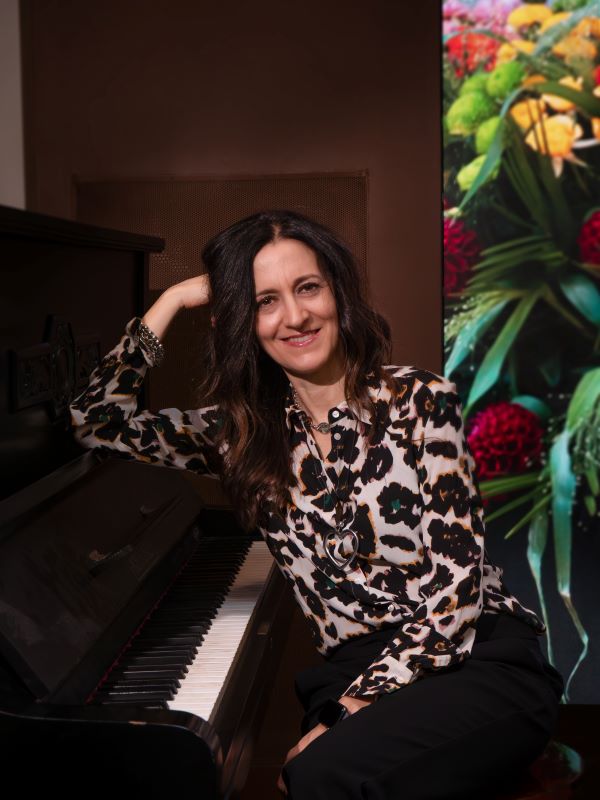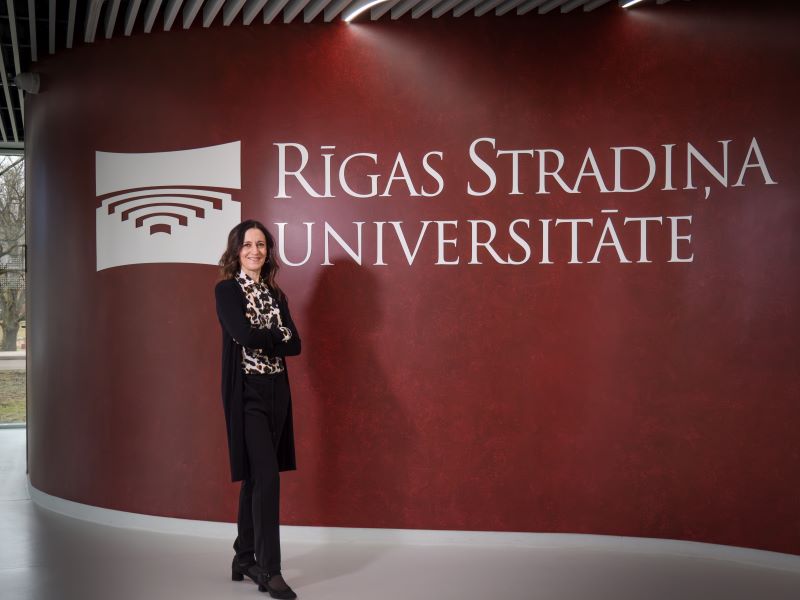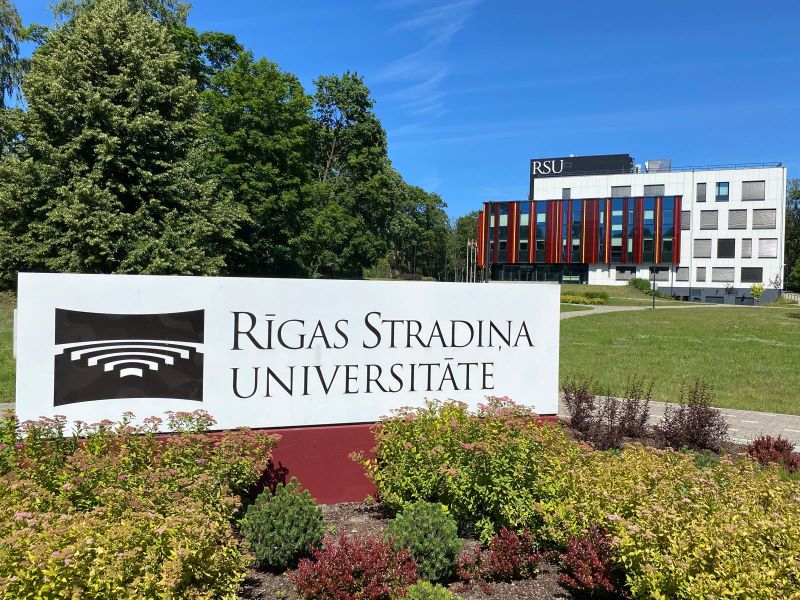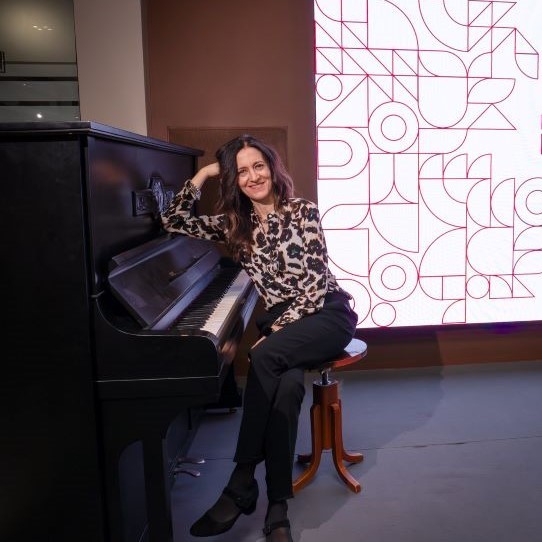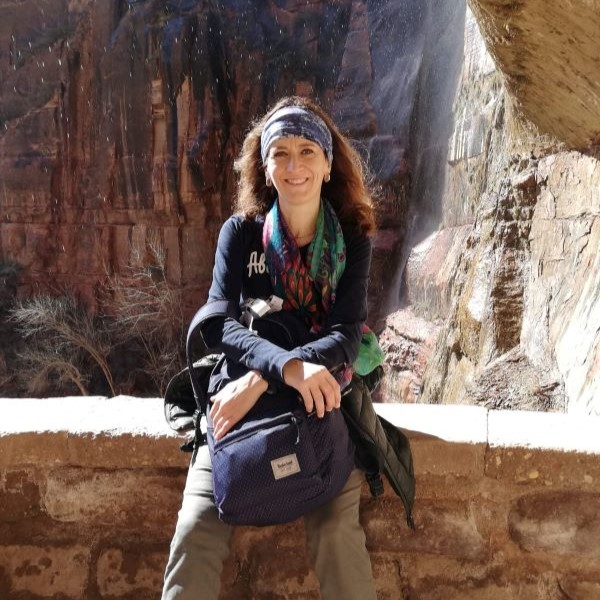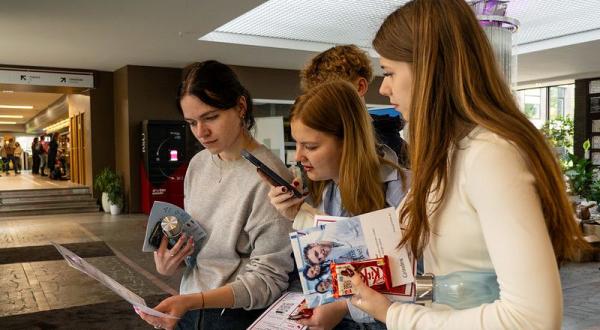‘RSU has a vision, drive, and ambition’: Introducing new tenured professor from Italy
Autore: Linda Rozenbaha, RSU Sabiedrisko attiecību nodaļa
Foto no RSU un Arkandželas de Nikolo privātā arhīva
We continue our series of articles introducing the tenured professors of Rīga Stradiņš University (RSU). This time, we present Prof. Arcangela De Nicolo, MD, PhD, from the Institute of Oncology and Molecular Genetics. She is an Italian physician-scientist, a medical doctor with a PhD in oncology and surgical oncology. Her story is marked by a great passion for science and the ability to bridge research discoveries with clinical practice, fulfilling her life's mission to improve lives.
Could you share your journey in science? What are the key highlights?
My career has been primarily academic and research-based. I realised early in medical school in Italy that research was my calling—the best way to practice medicine while fulfilling my quest to improve people’s lives. Determined to pursue training in the US, I moved to Boston to complete my PhD at Harvard Medical School and the Dana-Farber Cancer Institute. There, I remained as a research fellow in genetics and then as a full-time faculty member.
Spending over ten years in the US broadened my horizons and changed my life. I consider them a watershed–there is a time before, and after, with a wealth of scientific and human experiences in between. During my tenure at the Dana-Farber, the main focus of my research was women’s cancers, with an emphasis on hereditary breast and ovarian cancer. I defined the biological significance of sequence variants in breast/ovarian cancer genes and elucidated the mechanisms of BRCA1-mediated tumour suppression.
My “bridging” role allowed me to maintain a link with the clinical environment, which included contributing to a ground-breaking pilot clinical trial, and providing translational insights for basic science investigations.
Relocating to Europe coincided with a switch to “dry lab” research (i.e., research not done on the bench), and with extended scientific interests to also encompass other hereditary cancer syndromes and atypical/overlapping phenotypes, as well as matters related to public health and digital medicine. My substantial involvement in national and international cancer genetics and oncology networks—primarily, the Evidence-based Network for the Interpretation of Germline Mutant Alleles (ENIGMA) consortium—has greatly impacted my research. Recognising that advances in precision cancer medicine require a workforce with knowledge of genetics/genomics as well as engagement with different stakeholders, I have also embarked on a variety of educational activities and informative campaigns.
What motivated you to apply for the tenured professor position at RSU? What attracted you to RSU?
I am used to traveling, both for study and work, and living abroad (I began during medical school, with summer clerkships in Spain and Poland). After eight years since returning to Italy, I was satisfied with what I had accomplished and excited for the very busy programme ahead. I felt ready to take on new challenges. My priority was to find a scientifically vibrant, supportive environment where new ideas and projects could thrive. Working with Estonian, Latvian, and Lithuanian scientists on European projects and through collaborative networks had ignited my curiosity about the Baltics, their dynamic scientific community and determination to make their voices heard.
In my field, the small population size of the Baltic countries offers an ideal setting for cancer genetics studies (including pilot studies) and screenings that might be challenging elsewhere, providing valuable foundations for further research.
When the unexpected opportunity arose to apply for a tenured professorship at RSU, I interpreted it as a sign. My first visit to Riga (and RSU), during a week-long conference series, confirmed my impressions. Beyond the warm hospitality (and the wonder of an almost midnight sun!), I discovered a dynamic academic environment, a dedicated research community with a solid work ethic, and state-of-the-art facilities, making my decision easier.
Could you describe the research topics you are currently working on as a tenured professor?
My research aims at advancing knowledge in the area of genetic susceptibility to cancer (primarily, breast and ovarian cancer) so that informed clinical choices can be made. My ultimate goal is to contribute to precision cancer prevention and care, and, eventually, to improved outcomes. I am especially interested in tackling issues pertaining to the interpretation, delivery, and clinical application of germline genetic test results, with a focus on the BRCA genes and their so-called “variants of uncertain significance” (VUS).
Germline BRCA testing represents an ideal model for integrating genetic information into clinical practice. The key requirement is that the test identifies pathogenic variants (i.e., those invariably associated with a defined increased risk of cancer) so that carrier individuals can be offered targeted surveillance, prophylactic surgery, or ad hoc therapies, and specific tests for their blood relatives. Not all variants are pathogenic, however. Some are benign, meaning that they are not causally associated with the disease. Others are VUS, meaning that current knowledge does not suffice to determine if they increase cancer risk (or not)–a result that cannot inform decision-making.
Assessing the clinical significance of each identified sequence variant is not trivial, especially for genes that have not been studied as thoroughly as the BRCA genes. It requires expertise, concerted efforts, and multilayered evidence. To bridge the current gaps in interpretation and implementation, I will build and consolidate synergies between researchers, surgeons, and clinicians, fostering multidisciplinary breast cancer research. International collaborations will continue to be key.
Why did you choose this research theme?
When I started my PhD, I didn’t hesitate to focus on the BRCA tumour suppressor genes. At that time, the BRCA1 and BRCA2 genes, discovered a few years earlier, were the subject of intensive research worldwide. To me, they represented the quintessential paradigm of how intertwined the research and clinical settings are. I soon became aware of the wide variety of issues that still required clarification and I was eager to contribute. The great wealth of information collected about the BRCA genes to date has had a tremendous clinical impact, substantially modifying the standards of cancer surveillance, prevention, and care. As is often the case in biomedical research, each question has led to a host of new queries and the BRCA genes have continued to make headlines and have been studied and discussed in a variety of settings. With consistent enthusiasm, I have remained dedicated to this research theme throughout my career, which has naturally evolved over time, always centred around this unifying thread.
Could you share some of the most interesting insights, methods, or goals from your current research?
A few projects, which I have coordinated, are nearing completion and are expected to be clinically impactful. I presented them at RSU Research Week 2025.
I can provide the example of “traditional” research that achieved the classification of a long-standing BRCA1 VUS as pathogenic–a result that will guide the implementation of patient- and family-tailored cancer screening, prevention, and treatment programmes. Interestingly, the study also yielded serendipitous findings–yes, this can happen in science!–but I can not tell you more, at the moment [she smiles].
I can also mention an international collaborative effort that uncovered the “atypical” behaviour of another BRCA1 variant, which confers a lower breast cancer risk compared to well-established pathogenic variants. This finding will inform the development of adjusted recommendations for the clinical management of carrier individuals.
In addition to these, I am leading a rather unconventional research project that could benefit a broad audience worldwide. It is aimed at releasing standardised recommendations for reporting genetic test results for breast cancer predisposition in 21 languages. The accurate interpretation, communication, and application of test-derived information is a prerequisite for the responsible use of genetic testing as a precision medicine tool. Our global undertaking will guide more informed decision-making and contribute to equity in the access and use of genetic testing and in translational oncology.
Coordinating a team of clinicians and scientists from 25 countries across four continents has been a challenging, yet amazing experience.
Several exciting future directions promise to extend the reach of the project further and I look forward to the next steps.
What scientific disciplines are represented in your research team, and what roles do they play?
My current research encompasses a variety of disciplines. I will assemble and lead a team of bioinformaticians and data analysts with expertise in data curation, variant interpretation and classification, and federated analysis. Together, we will cover matters concerning cancer genetics, translational oncology, and epidemiology in the broadest sense. Through future collaborations, we will establish links with molecular and cell biology, biochemistry, pathology, and clinical oncology.
How do you envision the future development of RSU as a scientific university?
In Italy, we are used to old institutions and traditions. I got my PhD from, and then lectured at, the University of Padua, which recently celebrated its 800th anniversary. In comparison, RSU is decidedly young and, as such, dynamic and vibrant. It is on a rising path, investing in education and research, making bold choices that demonstrate vision, drive, and ambition. This makes RSU well positioned to grow, strengthen its reputation, and increase its visibility.
I have no doubt that RSU will gain resonance as research university and secure a leading role on the international stage.
I am eager to contribute to its excellence and success with my research and wide network of collaborations, furthering scientific directions and partnerships that have not been explored so far.
Who is a scientist or personality that inspires you the most in your work?
It is difficult to answer, as there are many who inspire me (and they are not necessarily scientists or well-known personalities). For sure, I am inspired by people who are true to themselves, who dare to think outside the box, who are genuinely curious, creative, intellectually bold, courageous, scientifically rigorous, honest, and kind.
Science is also about perseverance, what is your motto or guiding principle in science?
I would say that in science (as in life), if you are passionate about what you do, you will enjoy the journey and you will be able to overcome the obstacles along your way.
In your opinion, how has the role of scientists evolved in today’s world?
Even though science has always been about sharing and discussing, I think that scientists used to be more self-reliant and solitary.
Today, cancer research demands proficiency in technology, as well as collaboration across disciplines and geographic borders. Scientists are required to be connected, both within and beyond the scientific community. They are more visible and accessible than before, thanks to (social) media, and they increasingly serve as communicators.
Outside of science, what excites you the most?
This is an easy one! My other passions in life are: music, art, and travel.
Music: I used to play the piano, and whenever I return to my hometown in Apulia in southern Italy, I carve out some time to play. When possible, I go to live concerts. I like all genres, but classical music above all. It gives me peace of mind, recharges me, and inspires me.
Art: I am passionate about art in general, including arthouse cinema and photography. I like going to museums, to the theatre, to the cinema. These are all experiences that provide food for thought, unique opportunities to ponder on universal messages or topics that otherwise I would not have known or had time to explore. I also like taking photographs (some of those included in this article are from my collection!).
Travel: my curiosity and thirst for knowledge fuel my desire to explore new places. I have travelled to four continents, so far. I love natural landscapes, especially extreme ones, such as deserts. I like hiking, staring at nature’s beauty, stargazing, and listening to the sounds (and silence) of nature. I love to connect with locals. For me, traveling is about discovering new places, people, traditions, cultures, food and getting to know yourself better. It teaches openness and inclusivity, tolerance and respect. When I return from a trip, I feel changed and enriched–and this has a great impact on my research!
